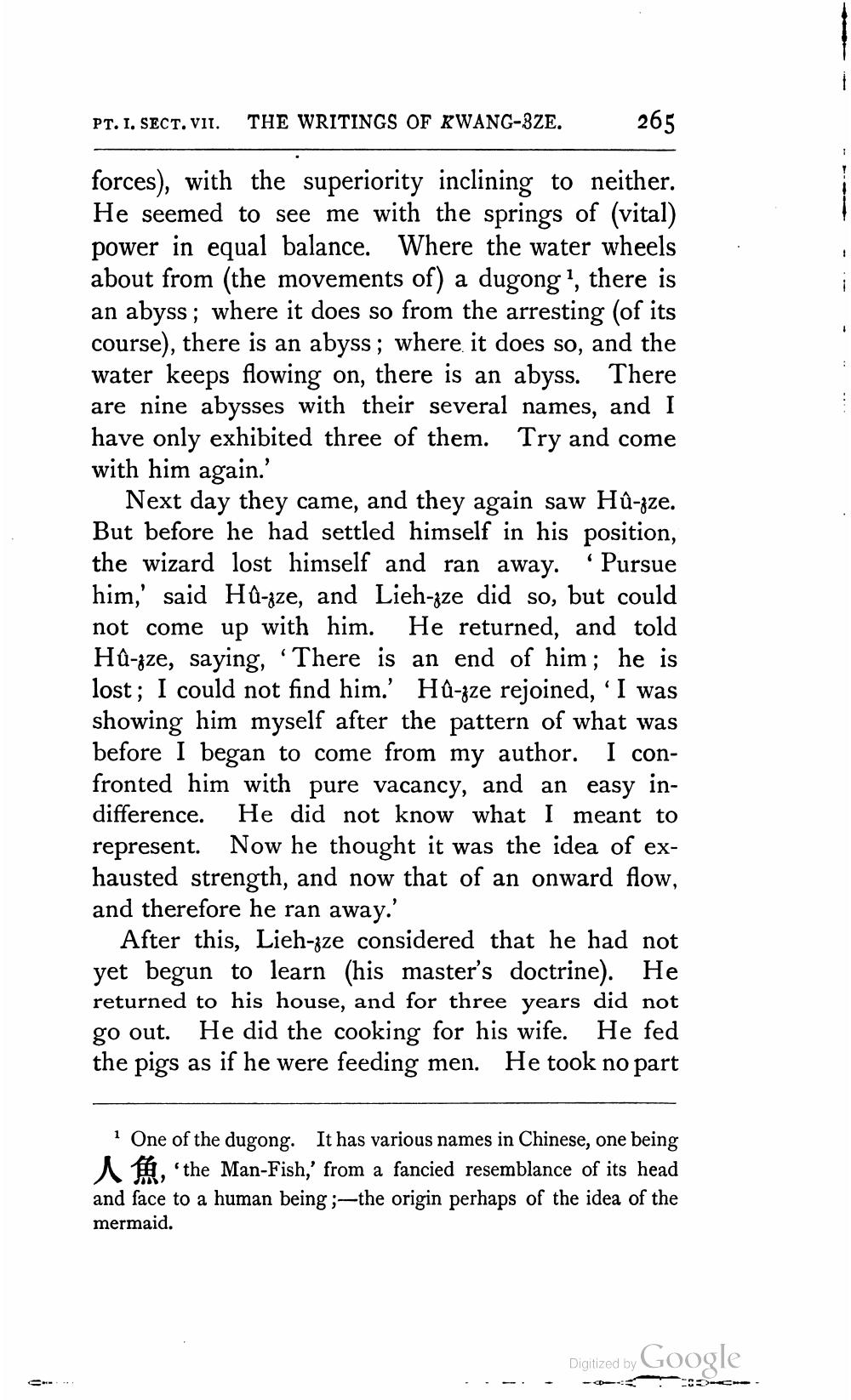________________
PT. I. SECT. VII. THE WRITINGS OF KWANG-BZE.
265
forces), with the superiority inclining to neither. He seemed to see me with the springs of (vital) power in equal balance. Where the water wheels about from (the movements of) a dugong?, there is an abyss; where it does so from the arresting (of its course), there is an abyss; where it does so, and the water keeps flowing on, there is an abyss. There are nine abysses with their several names, and I have only exhibited three of them. Try and come with him again.'
Next day they came, and they again saw HÛ-zze. But before he had settled himself in his position, the wizard lost himself and ran away. 'Pursue him,' said HÛ-zze, and Lieh-zze did so, but could not come up with him. He returned, and told HÛ-zze, saying, “There is an end of him; he is lost; I could not find him.' Hù-zze rejoined, I was showing him myself after the pattern of what was before I began to come from my author. I confronted him with pure vacancy, and an easy indifference. He did not know what I meant to represent. Now he thought it was the idea of exhausted strength, and now that of an onward flow, and therefore he ran away.'
After this, Lieh-zze considered that he had not yet begun to learn (his master's doctrine). He returned to his house, and for three years did not go out. He did the cooking for his wife. He fed the pigs as if he were feeding men. He took no part
One of the dugong. It has various names in Chinese, one being
'the Man-Fish,' from a fancied resemblance of its head and face to a human being ;-the origin perhaps of the idea of the mermaid.
Digitized by




